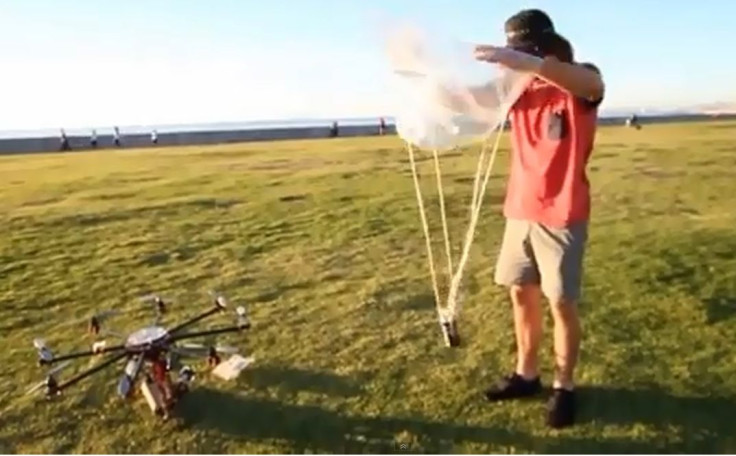Beer Drones: Robot Helicopters Soon To Deliver Alcohol At Music Festival

In a technological innovation that should trigger joy among concertgoers and panic among their livers, the South African music festival OppiKoppi has announced the debut of a beer drone delivery system that will allow customers to bypass long drink lines this August.
The OppiKoppi beer drone is a small remote-controlled helicopter with eight propelling rotors. Festival alcohol vendors will receive beverage orders from customers' smartphones, then attach beer cans to parachutes and load them into the octorotor device.
The beer drone will be remotely piloted by an operator to a location roughly above the customers, where it will release the can to parachute down to be retrieved and enjoyed.
The OppiKoppi Festival's Twitter account announced that the beer drone is hand-guided for now, but will eventually fly on a GPS grid-allowing it to autonomously track down thirsty concertgoers and parachute beer to their exact geographic coordinates.
Some may be bewildered by the prospect of flying robots raining alcohol down from the sky (among many other security concerns), but techno-Luddites and libertarians will inevitably have to adjust. Or, perhaps, to soak those anxieties in alcohol delivered via drone.
The Federal Aviation Administration (FAA) will allow commercial drones access to American domestic airspace starting in 2015, and if the OppiKoppi beer drone is a hit in South Africa, it isn't hard to imagine such devices taking off at American music festivals as well.
While creative, the beer delivery system is a frivolous use of drone technology compared to its likely future benefits. Livescience suggests likely scientific uses as varied as wildlife research, highway monitoring, and disaster relief.
Unmanned aerial drones may prove useful for healthcare in hard-to-reach communities as well.
A technology startup called Matternet hopes to build a network of drones that can parachute medicine, food, and health supplies down to places that are inaccessible by roads-it has already tested the technology in parts of Haiti and the Dominican Republic.
University of North Dakota drone researcher Ben Trapnell suggested to Nova on PBS that flying drones can also speedily and cost-effectively transport organs for transplants.
Meanwhile, South African concertgoers can enjoy the less high-minded but more immediately refreshing benefits of the beer drone delivery system this summer. OppiKoppi this year, perhaps Coachella and Bonnaroo the next.
[via Livescience and PopSci]



























